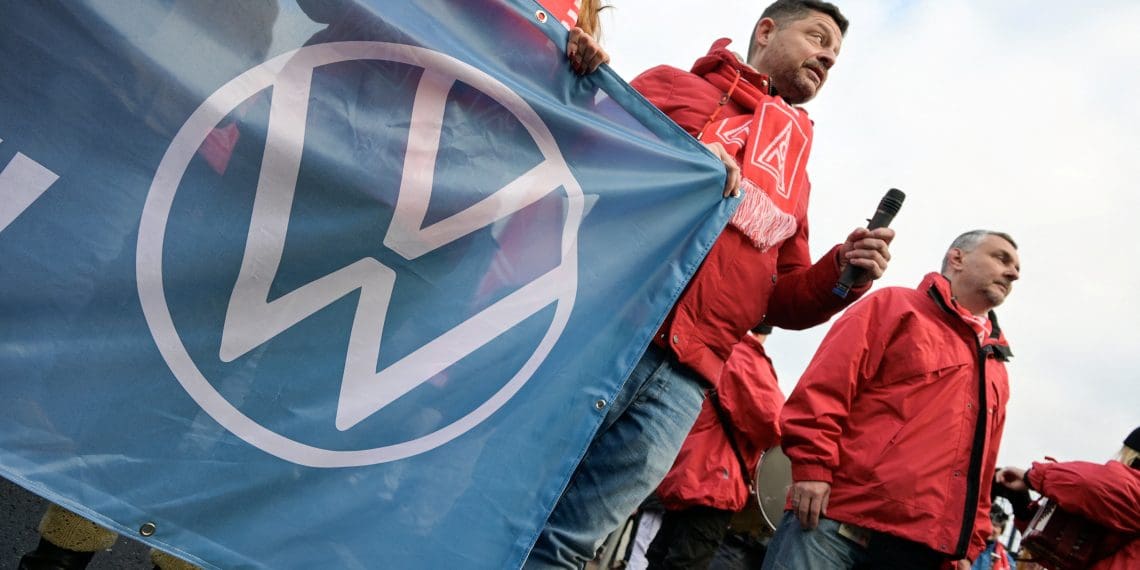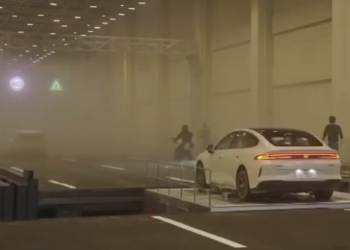Germany’s industrial powerhouse Volkswagen has been thrown into chaos as nearly 100,000 workers staged a fiery wave of strikes on Monday, protesting drastic cost-cutting measures that threaten their livelihoods and the company’s legacy. Organized by the formidable IG Metall union, the strike marks one of the largest and most consequential labor uprisings in Volkswagen’s history.
From Wolfsburg to Hanover, nine key Volkswagen plants were effectively paralyzed as workers staged coordinated two-hour strikes during morning shifts and early walkouts in the evening. Production lines ground to a halt as employees rallied against the automaker’s controversial plans to slash wages by 10% and shutter up to three of its iconic German factories.
Workers: “We Built This Empire, and We Won’t Let It Fall!”
The mood among striking workers was one of defiance and betrayal. “Volkswagen built its global empire on the back of German workers,” declared one striking assembler outside the Wolfsburg plant. “And now they want to throw us under the bus to save a few euros? We won’t stand for it.”
This sentiment has reverberated through the country as Volkswagen employees, once considered the backbone of Germany’s economy, now face what many are calling a corporate betrayal. The company’s justification for the cuts—rising costs, weak market demand, and increasing competition from aggressive Chinese automakers—has fallen flat among the workforce.
Union Fights Back: A €1.5 Billion Lifeline Rejected
IG Metall has countered Volkswagen’s austerity plans with an ambitious €1.5 billion cost-saving proposal that included suspending bonuses for 2025 and 2026. Yet, Volkswagen management deemed the offer insufficient, further inflaming tensions. “We’ve offered a fair and responsible solution,” said an IG Metall representative. “Volkswagen’s rejection makes it clear: they’re willing to sacrifice their workers for short-term gains.”
The stakes couldn’t be higher for both sides. Volkswagen is grappling with a slow transition to electric vehicles, skyrocketing production expenses, and an increasingly saturated market dominated by cutthroat competition. But for the workers, the fight is personal—a battle for their livelihoods, their communities, and their future.
Volkswagen’s Legacy on the Line
The strikes are already sending shockwaves through the global auto industry. Volkswagen’s German plants are the beating heart of its operations, and any prolonged disruption could have cascading effects on production schedules, supply chains, and investor confidence.
Experts warn that this could become a turning point for Volkswagen’s reputation. “Volkswagen’s brand is built not just on its cars, but on its commitment to quality and its workforce,” said one industry analyst. “Alienating its workers at this scale could do long-term damage to its standing in Germany and beyond.”
The Road Ahead: An Uncertain Future
With production frozen and tensions escalating, the big question is: who will blink first? IG Metall has already warned that this week’s strikes are just the opening salvo in what could become a drawn-out confrontation. “If Volkswagen doesn’t change course, we’re ready to escalate,” a union spokesperson declared.
For Volkswagen, the stakes are existential. As the company navigates the twin pressures of economic headwinds and technological transformation, it now faces a workforce united and unwilling to yield. Whether the automaker can chart a path forward without deepening this crisis remains to be seen.
One thing is certain: this isn’t just a fight for wages—it’s a fight for the soul of Germany’s most iconic automaker. And the world is watching.










